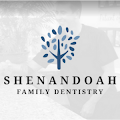Why Sedation Dentistry is the Solution to Your Dental Anxiety
Going to the dentist can be a daunting experience for some people. Whether it’s due to a previous traumatic experience or a general fear of the unknown, dental anxiety is a real and common issue. Fortunately, sedation dentistry has emerged as a solution for those who experience anxiety or discomfort during dental procedures. In this blog post, we will explore why sedation dentistry can be the solution to your dental anxiety.
What is Sedation Dentistry?
Sedation dentistry is the use of medication to help patients relax and feel comfortable during dental procedures. There are several levels of sedation available, including minimal, moderate, and deep sedation. Minimal sedation involves using nitrous oxide or “laughing gas” to help patients feel relaxed. Moderate sedation, also known as conscious sedation, involves the use of oral medication to induce a deeper state of relaxation. Deep sedation, which is typically used for more complex procedures, involves intravenous medication to induce a near-unconscious state.
Benefits of Sedation Dentistry
One of the primary benefits of sedation dentistry is that it can help patients who experience dental anxiety feel more comfortable and relaxed during their procedures. This can make it easier for them to get the care they need without feeling overly stressed or fearful.
Sedation dentistry can also be beneficial for patients who have a sensitive gag reflex, have difficulty sitting still, or have a low pain threshold. By inducing a state of relaxation, sedation can help these patients feel more at ease during their procedures.
Additionally, sedation dentistry can help patients who need multiple or lengthy procedures. Rather than having to endure hours of discomfort or anxiety, sedation can help patients feel more comfortable and relaxed throughout the entire process.
Types of Sedation Dentistry
As mentioned earlier, there are several levels of sedation available in dentistry. The most common types of sedation include:
Nitrous oxide: This is a mild form of sedation that involves breathing in a combination of nitrous oxide and oxygen through a mask placed over the nose. Patients typically feel relaxed and euphoric during the procedure.
Oral sedation: This involves taking a pill before the procedure to induce a deeper state of relaxation. Patients may feel drowsy or groggy during the procedure but can still respond to verbal cues from the dentist.
Intravenous (IV) sedation: This is a deeper form of sedation that involves administering medication through a vein in the arm. Patients may be in a semi-conscious state but can still respond to commands from the dentist.
General anesthesia: This is the deepest form of sedation and involves inducing a state of unconsciousness. It is typically reserved for more complex procedures or for patients who are extremely anxious.
Who is a Good Candidate for Sedation Dentistry?
Sedation dentistry is generally safe and effective for most patients. However, it may not be suitable for everyone. Patients who have certain medical conditions, such as sleep apnea or heart disease, may need to be evaluated by their physician before undergoing sedation.
It’s also important for patients to disclose any medications they are taking, including over-the-counter and herbal supplements, as these can interact with sedation medication.
Conclusion:
Dental anxiety is a common issue that can prevent patients from getting the care they need. Fortunately, sedation dentistry can help alleviate anxiety and discomfort during dental procedures. Whether you need a simple cleaning or a more complex procedure, sedation dentistry can make the experience more comfortable and less stressful. If you are considering sedation dentistry, talk to your dentist to see if it’s the right option for you.
